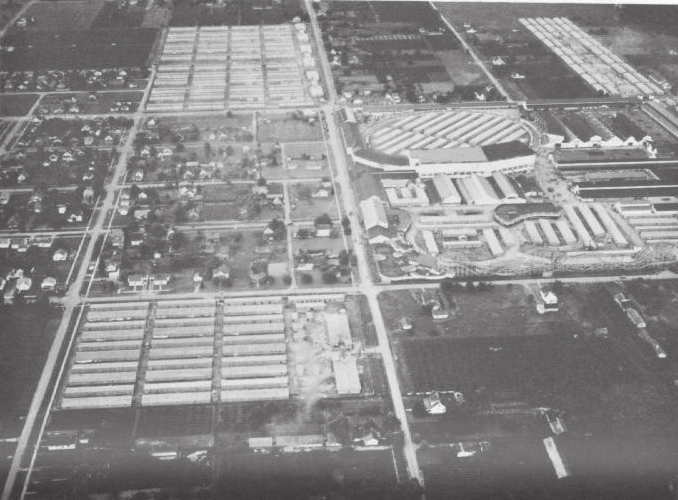
By Alyssa Danis
On Tuesday, Feb. 21, Tom Ikeda lectured on “The World War II Incarceration of Japanese Americans and Why it Matters Today” to students, faculty, and community members in the Rotunda, in remembrance of executive order 9066.
Executive Order 9066 called for over 120,000 Japanese Americans, German and Italian American immigrants to be sent to internment camps. Tom Ikeda was the guest of honor at the lecture; he is the son of survivors of internment and the Executive Director of Denshō, an organization founded in 1996 with the intent to document and preserve oral histories of those who experienced internment first-hand. However, Denshō quickly evolved into an organization that aims “to educate, preserve, collaborate and inspire action for equity,” according to the organization’s website, www.densho.org.
At his Puget Sound Lecture, Tom Ikedia shared stories about his family’s experience during the war an internment. “What you take away from this story is that as a country, when we start judging innocents for guilt or how American ap erson is based on race or religion, [it] really is a slippery slope. If we … see people as indivduals, we get away from what happened to Japanese Americans and some of the things happening now,” Ikeda said.
The racism that took place following Japanese internment was horrendous. In one firsthand account, Japanese American Aki Kurose said “All of a sudden my Japaneseness became very aware to me, you know. Then I … no longer felt like an equal American.”
While retelling the history of World War Two, Ikeda drew many parallels to current issues in the United States, and he directly related Executive Order 9066 to President Donald Trump’s Muslim Ban. “A lot of [racial tension] goes back to those early laws banning immigration. Because when that happened the country was saying to the rest of the country that we need to treat [the] Japanese differently,” Ikeda said. According to Ikeda, parallels can be drawn to the way Muslim Americans are currently being treated. “When we look at what happens in our country today, first we look at the ban of immigrants into our country. The second phase we will see is the same thing that we saw with the Japanese is a focus on the immigrants from those countries. Or who are of a particular race. It might even escalate to citizens as it did with the Japanese Americans.” Ikeda said. Ikeda pointed out that “now we hear the Trump administration saying well maybe [interning Japanese Americans] wasn’t wrong, Maybe that’s what we need to do during times of war, national stress.”
The lecture itself was focused on remembering the injustices brought against the Japanese American community while also standing in solidarity with the Muslim community. The lecture began with students from the Center of Intercultural and Civic Engagement reading the names of the about forty University of Puget Sound Students who were interned because of executive order 9066.
At the lecture, Dean of Students Mike Segawa shared his own connection to Japanese Internment: his mother and father had been sent to a camp in Arizone. He shared a story about a woman named Ms. Breed in order to explain how people not directly affected can play an important role in making a difference in times like these. Segawa descvribed Ms. Breed as a librarian who brought postcards, pencils, pens, and stamps to children going away to the internment camps. She corresponded with the children through their time in the camps in order to give them an outside support system. Later, a book was published, tited “Dear Ms. Breed.” The book, written by Joanne Oppenheim, contains letters by a nine-year-old girl named Catherine, Segawa’s mother. Segawa said “[he had] pride for what [his] parents and grandparents suffered through … [their] sacrifice allowed me to be who [he is].”
Following Segawa’s anecdote, Tom Ikeda posed the question “What does an American look like?” He shared a video that his daughter made in a ttempt to answer this question:
“Our government imagined an enemy within. Better wsafe than sorry, replace due process under law. Military necessity trumped equal protection. Our American ideals were discarded when they were needed the most. How did it happen? What does American look like? These questions for history, and for today.”
The powerful video ended Ikeda’s lecture, which as a whole served as one pathway for inspiring action for equity at Puget Sound. He reached the larger Seattle-Tacoma audience on Sunday, Feb. 19 at the protest event “Never again.” Ikeda, and the other speakers, discussed “the correlation between the Japanese-American past and the treatment of law-abiding American Muslim children and families today. The presenters [also talked] about what people can do to prevent harassment and discrimination of American Muslims in their community,” according to Densho’s website.



